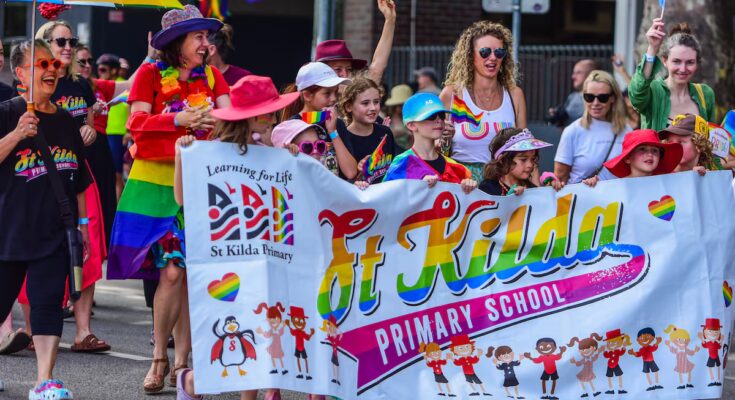Only one country in five in the world provides specific laws to protect LGTBIQ+ students, reports ILGA Mundo. Furthermore, according to data from the World Federation, only six members of the United Nations (comprising 193 countries) have developed comprehensive anti-harassment protection standards for these four categories: sexual orientation, gender identity, gender expression and sexual characteristics. Spain is one of them, as are Portugal, Greece, the Netherlands, Finland and Andorra.
Marcos Crespo, a 17-year-old gay high school student, suffered harassment throughout his high school years at his educational center in Madrid because of his sexual orientation. “I felt fear, humiliation and even disappointment. My abusers were people with whom I had shared many years of my life and I couldn’t understand why they behaved this way towards me,” she explains. They insulted him, pushed him, mocked him: “They beat me and I didn’t know how to ask for help.”
Bullying, in addition to harming the mental health of victims, reduces their academic and work prospects, highlights the report by ILGA World, which includes more than 2,100 organizations in defense of collective rights from more than 170 countries and territories.
“Its consequences increase health and social care costs. State inaction is harmful for LGTBI+ people and for society as a whole”, they add. Crespo ended up sharing her case with a group of friends who helped her report it to the center and then to her family. “I sincerely thank you for taking action on this matter,” underlines the young man.
“Bullying is a very particular form of violence that not only has young people as its main victims, but also as its main perpetrators,” explains Curro Peña Díaz, research consultant for the international LGTBI+ federation. “Therefore, pedagogical approaches are often used to educate bullies and provide some redress to victims within the school system, rather than resorting to criminal sanctions,” he continues.
The data published by ILGA Mundo specifies that, although they do not have exhaustive regulations on the matter bullying towards LGTBIQ+ students, 40 other UN Member States have adopted some type of legislation against harassment based on at least one of the following grounds: sexual orientation (38); gender identity (30); gender expression (13) and sexual characteristics (14). “Even so, they represent only a fifth of the world,” they warn, “and in a global environment, where reactionary forces have turned education into a battlefield.”
The reactionary international, from Argentina to the United States, passing through Georgia or Spain, focuses on what they call “indoctrination” of childhood and tries to eliminate any kind of mention of the LGTBIQ+ reality, whether by banning books, speeches in educational centers or eliminating specific protection rules. “That education on equality, human rights and constitutional values is presented as ‘indoctrination’ seems very serious to me,” complains the writer Nando López.
Mobilization
Before dedicating himself to writing, López worked as a teacher in a secondary school. Among his novels there are many with young protagonists: one of the latest is We were 15 years old (Loqueleo) and this month he publishes Small history of Spanish literature (Planeta)― therefore he regularly goes to educational centers to give conferences.
“With the advance of the far right and its arrival in the institutions, in the last five years it is evident how its hate speech has permeated and issues that seemed already consolidated, such as respect for diversity, are being questioned”, elaborates the author and then gives as an example some attempts to veto his interventions. “Fortunately there is also greater mobilization on the part of both teachers and the most committed students, who continue to launch initiatives in favor of equality and visibility,” he adds.
ILGA Mundo encourages more states to develop legislation that protects LGTBIQ+ students. “Most citizens want young people to advance safely through an education that secures their future, but for many people, bullying becomes a major obstacle along the way,” says Gurchaten Sandhu, the organization’s program director. “When governments refuse to act, they do not eliminate these obstacles,” he concludes.



